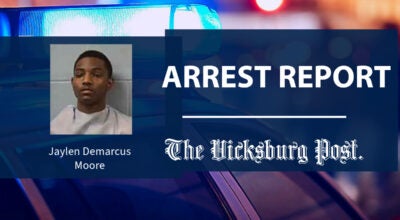Tax hike possible to cover drop in state funds for schools
Published 12:00 am Tuesday, March 6, 2001
[03/06/01] The Vicksburg Warren School District could see reduced state funding next year, Sen. Mike Chaney said, and the superintendent said a tax increase may be necessary to make up the difference.
“I don’t think y’all can take a $700,000 cut,” Chaney, R-Vicksburg, told trustees and other administrators at a meeting Monday night. “There’s no need in beating around the bush; it doesn’t look good.”
Because state income has been less than projected, rounds of cuts have been announced, including reductions in the Education Enhancement Fund and Minimum Foundation Fund. EEF money is used for textbooks, transportation operations, instructional materials and classroom supplies, assistant teachers, health insurance and additional support service funds. Minimum Foundation money is the big account. It pays teacher salaries, health insurance and overall transportation costs and may drop 3 percent for the 2001-2002 budget year that starts July 1.
Chaney said Monday he told superintendents from across the state at a meeting in November there would probably be a $62 million state deficit in Minimum Foundation funds. Superintendent Donald Oakes, who attended the November session, said other speakers at the meeting said there would be only a $22 million to $24 million deficit. Chaney also told trustees if the budget is $200 million short in July, there will be a 2 percent or 3 percent reduction in Minimum Foundation money.
Oakes said he is unsure what reductions in Minimum Foundation money the district will experience until the Legislature takes action.
“We really don’t know,” he said. “We’re just going to have to wait until they decide.”
The 9,200-student district planned to spend $53.2 million this year, of which $3,081,045 was to be EEF money. When the state check came, it was $433,000 less than expected. More than half of the district’s budget comes from state and federal funds; the local share is $19 million.
The school district will be all right this year, Chaney said, but he told trustees and administrators to start looking at ways to make up for next year’s $800,000 to $1 million in reductions, including a local tax increase.
The district already reaps the benefits a 43.88-mill rate from local property taxes, and the rate hasn’t been increased since 1998, Oakes said. State law provides for a minimum of 28 mills and a maximum of 55 mills.
“There’s nothing wrong with being at 46 or 47,” Chaney told trustees. “You’re fine.”
Oakes said he realizes a tax increase is not going to be popular, but it may be necessary to avoid cutting positions and programs. The district offers a variety of extra courses including foreign languages, advanced science and math, as well as fine arts electives. It also employs 137 teachers whose salaries are paid from local money, Oakes said.
“Unless we raise taxes, there are going to be tough cuts,” he said. “The last thing you want to cut is people.”
Board of trustees president Zelmarine Murphy agreed. “We are concerned about courses we want to offer and about teachers.”
Even though a budget deficit is expected, Oakes said he is reluctant to say what adjustments will be made to the 2001-02 budget.
“These are hard times to make decisions,” he said after Monday’s meeting.
Chaney told trustees the Legislature should provide a more definite answer to school districts about the budget’s status in the coming weeks. The current session ends this month.
“I don’t have good news, but I hope what I told you isn’t as bad as you thought,” he said. “In the next three weeks, we will know where we are.”
Rep. George Flaggs, D-Vicksburg, and Rep. Chester Masterson, R-Vicksburg, were also invited to speak at Monday’s session, but did not attend. The meeting was suggested by Murphy at the district’s February board meeting.
“To hear directly from the authors of bills gives us assurance that we have support,” she said. “We know our legislators are in our corner, and we’re very proud of that.”





